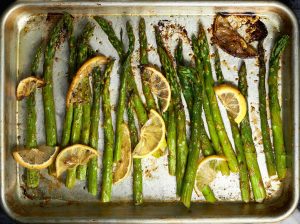
There is no school of medicine or nutritional paradigm that does not consider breakfast to be “the most important meal of the day.” The reason for this is of course, science: the fact that morning is when our metabolism is strongest and we are most sensitive to our body’s insulin, whose job it is to break down glucose.
Nevertheless, cultural conditionings invariably conflict with scientific evidence, and breakfast remains generally the most neglected. People either don’t eat it at all, cite coffee as “breakfast,” or turn in C- work in the form of the unhealthy toast or bagel, otherwise “healthy” smoothies and yogurt. From a Chinese medical perspective such breakfasts are mostly inadequate in protein or healthy fat, and worse, they’re cold and sweet. As my mentor, Suzanne Robidoux always says: “A smoothie is not a meal.”
Once in a while, such indulgences are okay. But if taken regularly over time the microbiome becomes colder and weaker, and/or encumbered with gluten and sugars. Once this happens it becomes more difficult to digest heartier foods, so when we try introducing them we feel bloated. Instead of nutrients, our food turns to inflammation, our guts get weaker, and so on. This is the vicious cycle that leads people to have little to no appetite in the morning… which is the metabolic equivalent to not feeling tired at night, or not having a libido during the summer. It is an imbalance (of the liver or gallbladder meridians) that must be corrected.
One way to do so is to fake it until you make it. Eat warmer, higher calorie foods for breakfast, but begin with smaller portions, “smaller dosages,” to allow the body to acclimate. In Chinese medicine there are few foods more revered than (organic) eggs. I have no reservation in advising that it is impossible to eat too many eggs—especially of good quality. Start with one egg, ideally cooked a bit runny and over easy, but any way is beneficial (the yolk is thought to nourish our yin and blood, and is used in certain herbal formulas). You may cook with organic butter, avocado or olive oil, and/or dressed with olive oil at the end. Alternately, one can start with roasted vegetables…
“What??? Roasted vegetables for breakfast???” remarks all every American I know.
Yes. I realize this seems very odd in our country, but keep in mind that our country also leads the first world in cancer, autoimmune, and heart disease. Anyone not willing to step outside of the box of our cultural norms, in my opinion, puts themselves at great risk.
Roasting vegetables in the morning is SO EASY. In the winter I’ll throw a bunch of sweet potatoes (another Chinese herbal superfood) or brussels sprouts in the oven—in summer I’ll err more towards asparagus, if not sauteed leafy greens on the stove. Not only is this fast and simple, but also easy to digest, and checks off much of our daily vegetables requirement. My wife and I eat this with eggs literally every single morning, which in my opinion has undoubtedly nourished for our microbiomes a virtuous cycle of having strong morning appetites and putting them to good use by churning through substantial fatty protein. Or in Chinese medical terms, “the qi is strong” with which to start the day.
We’ll never know the diseases we avoid through good habits. We’ll only know those we endure, and quite often we’re left unsure of what caused them. The conditionings of fast-paced capitalism are obviously what has led us to neglect this spectacular source of strength in the day’s first meal. I highly recommend working towards reversing it. As always, acupuncture and herbal medicine can encourage things in the right direction.
To learn more about how the Chinese medical paradigm of self-care can care for you please don’t hesitate to CONTACT US.


